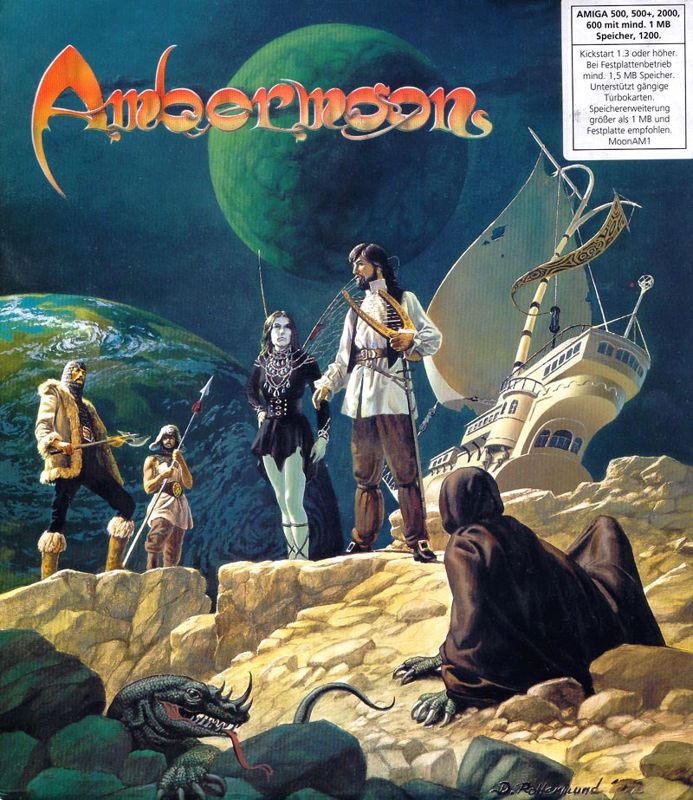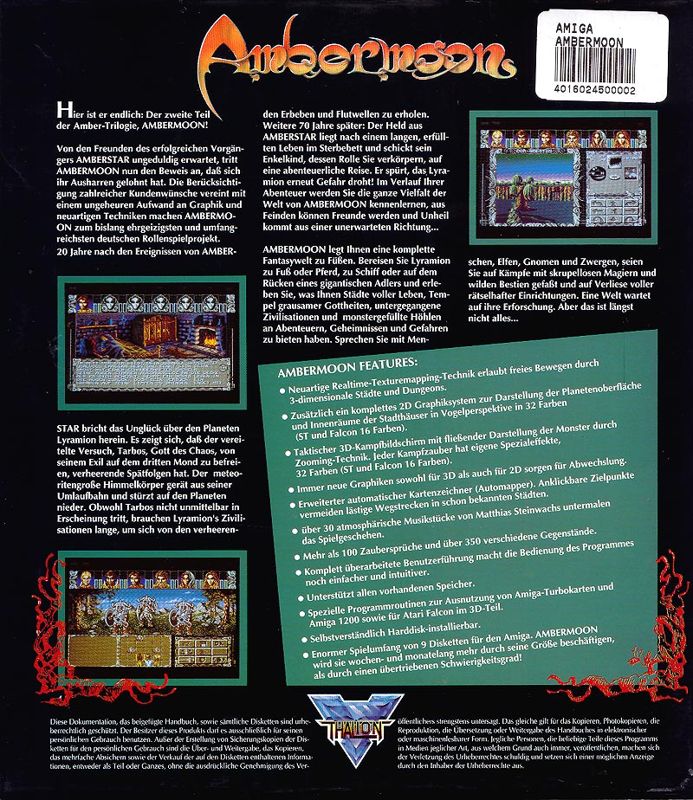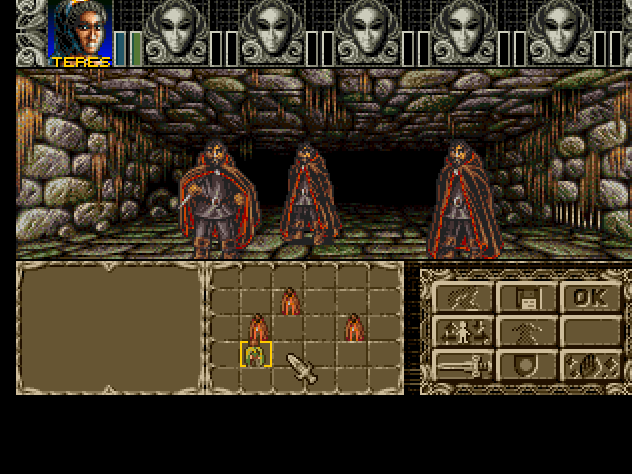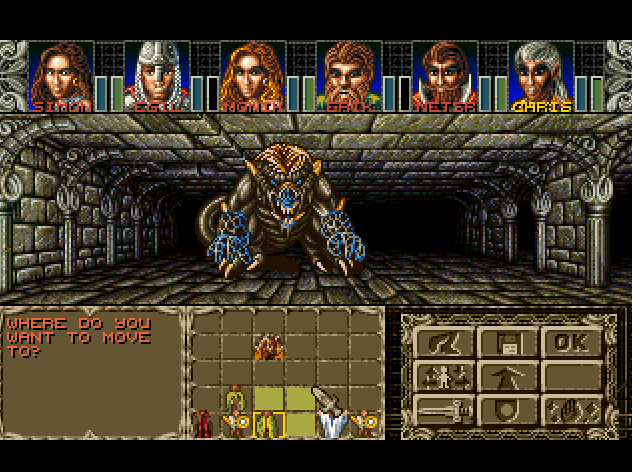Ambermoon is the second game in Thalion’s never-finished Amber trilogy that was started out by Amberstar. The sequel is set more than half a century after the first game, the world of Lyramion just starting to recover from the destruction caused by the collapse of the red moon. The original protagonist is an old, dying man as the game starts out. He summons his grandchild and tells him about a vision he had, of an old friend who supposedly died more than forty years ago and warned him of a great evil rising again. He sends the youth on a quest to seek that old friend and find out what is behind that vision.
Concerning gameplay, Ambermoon is similar to its predecessor. The player initially controls only the main character, having the choice between a male and a female protagonist with several portraits each, but otherwise unable to customize them at that point. During the course of the game, additional characters may be recruited in various places in Lyramion; up to six form an active party that participates in combat. All characters can train physical attributes by specific NPCs in various towns, while some can also buy, learn, and cast offensive, supportive, and healing magic spells.
As in Amberstar, the game world is divided into two modes. Overworld travel and most house interiors are presented in 2D, while most dungeon-like and a few other areas are in first-person 3D. As opposed to the previous game with its “step-by-step” movement similar to Dungeon Master, the sequel has a real 3D engine with textured floors and ceilings. Combat initiates when the player-controlled party comes into contact with a hostile creatures; in some cases the player is given the option to avoid combat. Battles are turn-based and tactical, with characters moving on a grid. Party formation and movement plays an important role in the outcome of the battles. There are no enemies during overworld exploration, and most of them do not respawn.
The game is mostly set on the various islands comprising Lyramion. During the course of the game the player acquires various means of transportation, among those a witch’s broom and a giant eagle that can carry the party across the world. Though there are many specific tasks that need to be accomplished in order to complete the game, there are also optional locations and quests. Some tasks require interaction with objects and puzzle-solving. The game features a day-and-night cycle that may affect visibility and NPC schedules. Items can get broken or worn out, requiring a repairman to fix them. Characters get tired and need to rest periodically, recovering lost hit points if the player has procured rations. Torches or lanterns can be used to illuminate dark areas.
The interface is pretty much identical to that of Amberstar; moving is done with the number pad and toggling the pad keys between movement and actions (look at, talk to, use etc) with the enter key. The same can be achieved with the mouse; left-clicking a button performs the corresponding action while right-clicking toggles movement/action modes.
Cover Art:
Screenshots:






